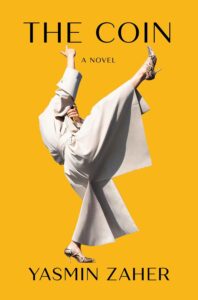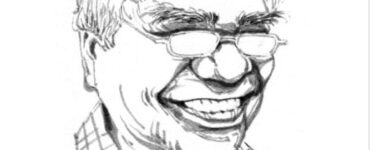Book Title: The Coin
Author: Yasmin Zaher
When I first opened “The Coin” by Yasmin Zaher, I felt as though I had stumbled into a labyrinth with no clear exit. The structure itself—fragmented, jagged, relentlessly shifting—startled me with its refusal to soothe or simplify. Zaher doesn’t write to comfort; she writes to confront. Each page felt like a shard of glass pressed into my palm, demanding that I piece together meaning from fragments that refused to sit neatly. It was maddening at times, exhilarating at others, but never forgettable. Reading this book wasn’t passive—it was an act of survival, a negotiation between clarity and disorientation.
What struck me most was the way Zaher uses fragmentation not as literary ornamentation, but as an echo of the fractured lives she depicts. The characters seemed to live inside silences, absences, and ruptures, and I found myself stumbling with them, doubting my own comprehension, rereading passages as though straining to hear a faint voice through static. Slowly, I realized the disorientation was the point. The book forced me to recognize how much I cling to clean, linear narratives to feel safe—and how false that safety often is. Very few novels dare to make readers sit inside that discomfort. Zaher dares, and she dares magnificently.
The emotional force of this novel is not something you can leave behind once you close its covers. Its themes—displacement, alienation, the weight of histories that haunt even when unspoken—pressed themselves into me long after I set the book down. There were moments when I truly resisted, when I felt stripped bare by the intensity, yet Zaher’s prose burned with such urgency that it drew me back, almost against my will. It’s rare for a book to wound and compel in the same breath. “The Coin” does both.
I was equally captivated by Zaher’s quiet political ferocity. She never sermonizes, never slips into the easy mode of “explaining” context to the reader. Instead, politics emerges through the grain of everyday life—through the unspoken, through gestures, through characters who embody both survival and silence. These absences spoke louder than any manifesto could. In those moments, I felt exposed, implicated, even guilty, as though the book refused to let me retreat into the safe role of observer.
And yes, this is not a novel for everyone. Its elliptical style resists easy reading, and there were times when I longed for more solid ground beneath my feet. Yet even that resistance feels intentional, part of the experience Zaher insists we endure. “The Coin” is not meant to be consumed—it is meant to be wrestled with, argued with, lived with. That is precisely what makes it unforgettable.
When I finally set it aside, I felt both exhausted and transformed. Zaher has created not just a novel, but an encounter—one that unsettles, provokes, and refuses to fade. Some of its silences will stay with me longer than most words I’ve read this year. “The Coin” reminded me of literature’s most dangerous and necessary truth: that stories do not exist to reassure us. Sometimes, they exist to break us open.
*









This review could have had Ten lines of summary of the Novel “The Coin” – except the climax and element of suspense to retain the curiosity.